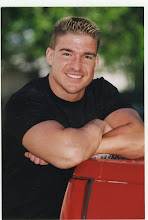Exercise, both strength and endurance training have numerous benefits. However, exercise can put significant stress on your body causing muscle soreness, the need for more sleep, increased appetite etc. These symptoms are letting you know your body is in need of replenishment. Assuming your rest and nutrition are on point, repeated bouts of exercise & recovery will lead to increased muscle fiber size and strength. This process is known as "remodeling".
"Remodeling" your body is a lot like remodeling a house. You can have a great blueprint, and spend a lot of time gutting the property and cleaning up, but if you don't have the materials available to put up new walls, roof, floors etc. you'll be left with nothing more than a gutted house.
Exercise uses up carbohydrate (glycogen), and protein is needed to repair& amp; rebuild muscle tissue. Without quality carbohydrates & proteins available the remodeling process will be minimized, and our ability to reach our physical potential will be greatly reduced!
In Regards to Carbohydrate: Research has shown that a carbohydrate intake of 0.8 to 1.2 grams per 1 kilogram of body weight immediately post workout maximizes glycogen synthesis and accelerates protein repair. However, unless you've had a very long, intense workout, 1.2g/kg may be a bit excessive as excess carbohydrate can be converted to bodyfat. Therefore I recommend 0.8g of carbohydrate per 1 kilogram of body weight for speeding up muscle carbohydrate replenishment while preventing excess fat gain (van Loon et al 2000a).
In Regards to Fat: Although essential fats are often overlooked as a being an important part of a healthy diet, post workout is one instance when fat should be avoided. Consuming fat as part of a post workout drink/meal will slow the absorption of nutrients, and the minutes following the completion of your workout is a time when how quickly you can provide your muscles the carbohydrate & protein they need is critical!
Post workout muscles are primed for nutrient uptake. This period is often called "the window of opportunity". Research has shown that consuming a post-exercise meal immediately after working out is superior to consuming one only 1 hour later. In addition, consuming one 1 hour later is superior to consuming one 3 hours later (Tipton et al 2001, Levenhagen et al 2001). If you wait too long, glycogen replenishment and protein repair will be compromised.
Typically whole food is superior to supplements. This is not the case post workout. A post workout drink that combines both carbohydrate and protein will be able to be digested and absorbed much quicker. This will help take advantage of the "window of opportunity" mentioned earlier.
The ideal proteins to use in a post workout drink are whey hydrolysates and isolates, and carbohydrates dextrose and maltodextrin.
In a nustshell, the quality and timing of your post workout nutrition will maximize your time spent in the gym, and greatly improve the opportunity for you to reach your health & fitness goals!
I hope you find this information useful, but the information provided is only as good as the person who puts it use.
Happy Training!
Sincerely,
Scott Fleurant
Owner: Impact Fitness Center
ACE Certified Personal Trainer
